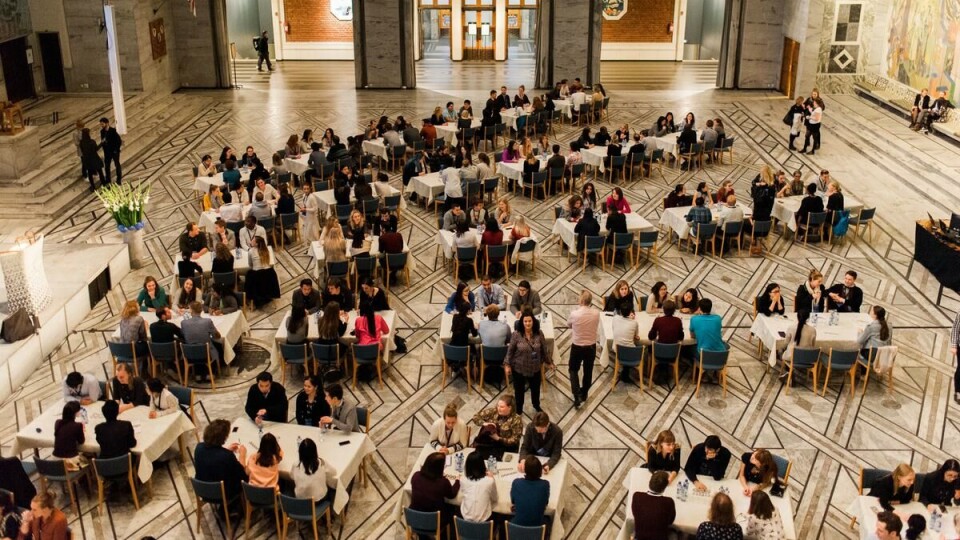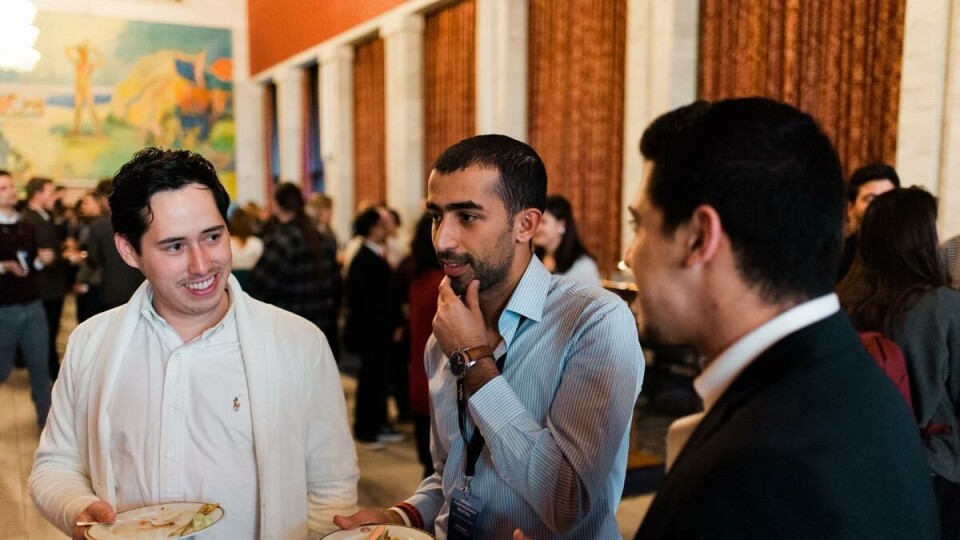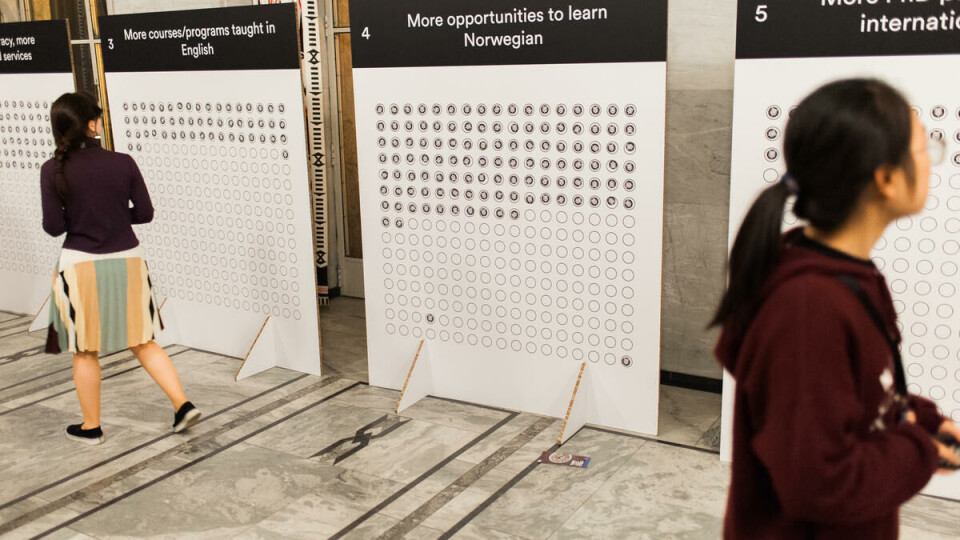
Oslo City Council aims to improve international student life
The event «Why Oslo?» highlighted the main assets and issues of being an international student in the capital.
The Oslo City Council held a student reception Oct. 12 at the City Hall. The event titled «Why Oslo?» attracted more than 200 international students from different institutions, with a common goal of sharing and improving their experiences.
«This is like Christmas Eve! We’ve been working on this event since May, and here we are. Over 50 nationalities are present. It’s been very productive, we’re getting a lot of input», said Marit Høvik Hartmann, moderator of the event and Director of Communications and Marketing for Oslo Business Region. The company works to develop and increase the number of new national and international businesses in Oslo, and co-hosted the event.
Planning an «International House»
The Governing Mayor of Oslo, Raymond Johansen, was also essential in planning the event. He is firm on the importance of a rapid internationalization of Oslo as a student city.
«Oslo faces a lot of international competition. We need to be an attractive city and an inviting place to study», Johansen said. He thinks the most natural way to reach these goals is by attracting international students.
«It’s crucial we look outwards. We also need to improve our collaboration with the different educational institutions: UiO, BI and HiOA,» he added, referring to three major higher education institutions in Oslo: the University of Oslo, BI Norwegian Business School, and Oslo and Akershus University College.
Johansen also highlights the importance of diversity in order to foster creativity and innovation.
«Oslo is one of Europe’s fastest growing capitals. We must strive to be both open and relevant in order to attract the brightest minds,» he said.
When discussing the role of Oslo as a host city for international students, Johansen emphasised the importance of being an open and inviting place. Plans for an ‘International House,’ aiming to fuse and centralise services for foreign students and workers, are in the works. The location has yet to be decided.

«Administration takes ages»
The reception Thursday night aimed to identify the biggest challenges international students in Oslo are facing. Among the students Universitas talked to there was a strong consensus on bureaucratic processes being a major, time consuming, issue.
«It’s definitely the biggest challenge. There is a lot of stuff to fix, and it takes ages», said Annika Frosch, 26, from Germany. She just started a Master’s in Public International Law at the University of Oslo.
Carlos Chávez, 25, from Mexico and Azeddine Elhanaoui, 26, from Morocco were also quick to point out administrative issues as the major setback to integrating more smoothly. They both arrived in August for their Master’s in Finance at BI.
«It's like a three months long limbo. It's expensive enough as it is! Setting up a bank account alone takes months», said Azeddine, sighing.

Want to work
In the second half of the event, the students gathered for a workshop on how to improve present student life. More affordable Norwegian language courses and student housing were common answers, but the winner is indisputable: international students want more information on how to work in Norway.
«Job opportunities seems to be the area in most need of improvement. This also sends out an important signal: international students want to stay in Oslo», Hartmann said, reflecting on the results of the workshop.
However, there are also other reasons to stay, according to Chávez and Elhanaoui. They are both overall pleased with their first few months as students at BI.
«We all loved Fadderullan», Chávez and Elhanaoui said, grinning broadly. They were referring to the two-week long introduction week at BI. The buddy week, called Fadderullan, is notoriously known for its festivities, yacht cruises and concerts.
An annual event?
Governing Mayor Raymond Johansen hopes the reception will become an annual event.
«This is the first time we’re hosting something like this. Preferably we’ll be able to hold it twice a year in the future: one in June before the students leave, and one in the autumn as a welcome reception. That would be brilliant!», he said.



































